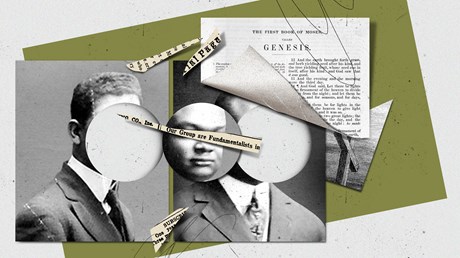A hard racial line divided conservative white and Black Protestants 100 years ago. It didn’t have to be that way.

Seventy-four years ago, Carl F. H. Henry, the first editor of Christianity Today, produced his watershed volume The Uneasy Conscience of Modern Fundamentalism. This work represented Henry’s clarion call for evangelicals to engage with the social ills facing the world, to apply the fundamental doctrines of the Christian faith to address the needs of society without being trapped into preaching a mere “social gospel.” Fundamentalists of the prior generation, he argued, showed a troubling “reluctance to come to grips with social evils” as they isolated themselves from the surrounding world.
Listed with “aggressive warfare,” “the liquor traffic,” “exploitation of labor or management,” and other social sins that Henry identified as too removed from fundamentalist rhetoric and conscience was, notably, “racial hatred and intolerance.” And this was, by and large, an accurate assessment, at least among those whom Henry here envisioned as “fundamentalists”—a category essentially white in its composition.
This assumption was not only shared by Henry and his contemporaries but by historians looking back on the era. Yet while the conscience of Henry’s fundamentalists might have been uneasy under the weight of social isolation, there is another fundamentalist conscience of this era that has long been obscured. The self-conscious presence of Black fundamentalists on the early-20th century American religious landscape both interrupts the common historical narrative and, perhaps, might prompt today’s evangelical heirs of the fundamentalist movement to reflect on their theological heritage.
The theological thrust behind fundamentalism ...
from Christianity Today Magazine
via


.gif)

.gif)
.gif)
